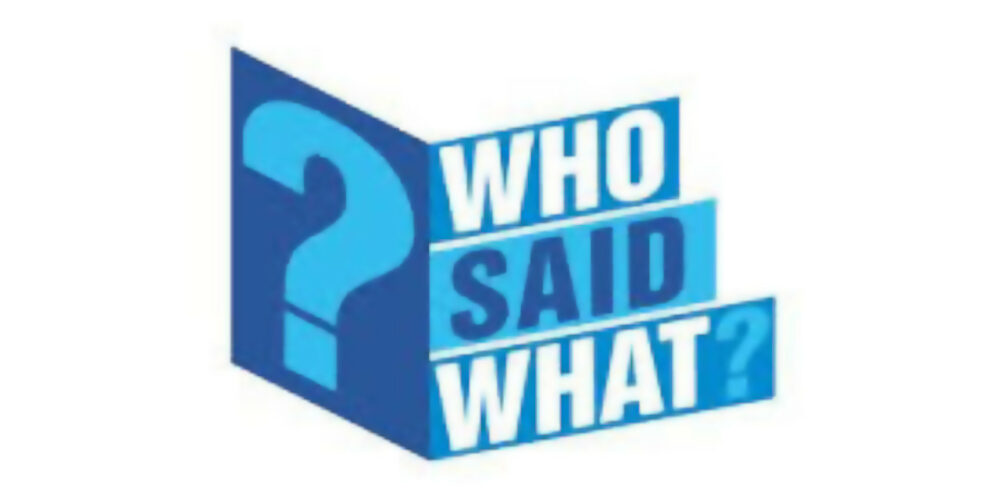“The corporate media’s indifference to Assange’s trial hints at the fact that it is actually doing very little of the sort of journalism that threatens corporate and state interests and that challenges real power. It won’t suffer Assange’s fate because, as we shall see, it doesn’t attempt to do the kind of journalism Assange and his Wikileaks organisation specialise in.”—Jonathan Cook (journalist).
“Washington needs ‘a new way of thinking’ that would acknowledge that today no country is able to achieve such a unilateral superiority in both strategy and economics that nobody will be in a position to threaten it.”—Henry Kissinger, warning the current US regime to change course on China or “we will slide into a situation similar to World War I.” If the king of warmaking is worried, then for once let us all join him.
“Schools should not under any circumstances use resources produced by organisations that take extreme political stances on matters.”—Department for Education (Britain), directive to schools in England. An extreme political stance is defined as “a publicly stated desire to abolish or overthrow democracy, capitalism, or to end free and fair elections,” and then goes on to list other issues.
“It’s time to put humanity and life, not just carbon, at the centre of the climate crisis and our solidarity.”—Aruna Chandrasekhar, independent journalist from India.
“Socialism is the only solution for the Irish farmer, because capitalism is the enemy, the friend of the elites who are trying to destroy Irish agriculture and using it only to fatten even more their own greedy pockets.”—A letter to the Midland Topic from “A local farmer.”
“Aaron Leonard’s works continue to shed light on the paranoiac police state known as the United States of America.”—Ron Jacobs, American commentator on The Folk Singers and the Bureau, documenting the FBI’s attempt to destroy the left-leaning folk singers Woody Guthrie, Pete Seeger, Josh White, Lee Hays, and many others.
“Unity means sharing the fight, the risks, the sacrifices, the objectives, ideas, concepts and strategies, which are developed through debates and analysis.”—Fidel Castro.
“Do they know the word ‘intervention’ acts as a euphemism for cold-blooded murder under false pretenses . . . For what fascism and liberalism share is their undying devotion to the capitalist world order . . . The fundamental dividing line is not between two different modes of capitalist governance, but between capitalists and anti-capitalists.”—Gabriel Rockhill, Franco-American philosopher, dismissing any real difference between liberals and fascists.
“I congratulate the winners and ask them to govern with Bolivia and democracy in mind.”—US-backed “interim president” and coup plotter Jeanine Áñez Chávez, lecturing the winners of the presidential election in Bolivia.
“Instead of becoming distracted by the ‘threat’ of populism, we should do more to . . . represent the concerns of citizens and to deliver effective and timely policy solutions.”—Daniella Wenger, Bennett Institute for Public Policy, and Roberto Foa, lecturer in politics and public policy at the University of Cambridge.






